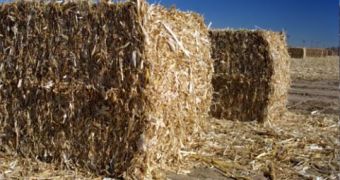Just recently, scientists working with the Michigan State University developed a new technology that allows them to maximize energy recovery from biological waste.
It is expected that their findings will help make biofuel production 20 times more efficient.
The study is published in the latest issue of the Environmental Science and Technology journal, and argues that it is possible to significantly boost biofuel production simply by adding a second bacterium into the mix: Geobacter sulfurreducens.
More precisely, lead researcher Gemma Reguera, who specializes in microbiology, explains that by introducing said second bacterium into the process of making biofuel, all of the fermentation byproducts (i.e. compounds that do not turn into ethanol) are removed, while at the same time electricity is generated.
This electricity harvested from nonethanol materials is further used to optimize the energy recovery process even more, as it is channeled in such ways that it generates hydrogen.
As the scientists explain, developing this new technique was quite tricky, as several aspects had to be taken into consideration.
Thus, the final bacterium mix needed to be made up of a primary bacteria which could turn agricultural waste into ethanol, while at the same time leading to byproducts that the second electricity-producing bacterium could metabolize.
However, as cited on the Michigan State University's website, Gemma Reguera claims that it was all worth it, because “By removing the waste products of fermentation, the growth and metabolism of the fermentative bacterium also was stimulated.”
She further adds, “We increased energy recovery to 73 percent. So the potential is definitely there to make this platform attractive for processing agricultural waste.”
Bearing in mind the fact that our modern society is presently undergoing a struggle to reduce our dependence on polluting energy sources such as coal and fossil fuels, we can only be glad to hear that biofuel production will soon be much more efficient, thus making it easier for us to switch to a more environmentally-friendly lifestyle.

 14 DAY TRIAL //
14 DAY TRIAL //